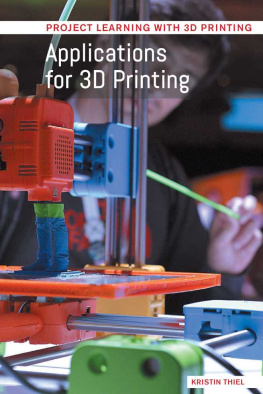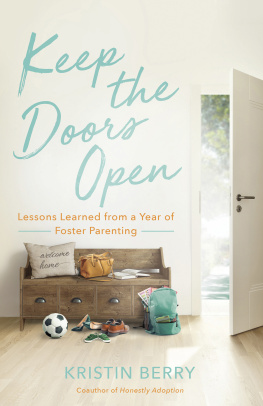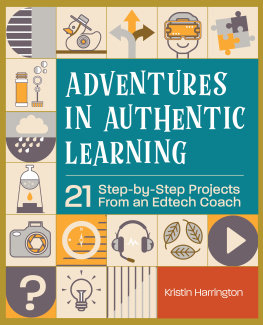Stanford University Press
Stanford, California
2017 by the Board of Trustees of the Leland Stanford Junior University.
All rights reserved.
No part of this book may be reproduced or transmitted in any form or by any means, electronic or mechanical, including photocopying and recording, or in any information storage or retrieval system without the prior written permission of Stanford University Press.
Printed in the United States of America on acid-free, archival-quality paper
Library of Congress Cataloging-in-Publication Data
Names: Yarris, Kristin Elizabeth, 1973 author.
Title: Care across generations : solidarity and sacrifice in transnational families / Kristin E. Yarris.
Description: Stanford, California : Stanford University Press, 2017. | Includes bibliographical references and index.
Identifiers: LCCN 2016054546 | ISBN 9781503602045 (cloth : alk. paper) | ISBN 9781503602885 (pbk. : alk. paper) | ISBN 9781503602953 (digital)
Subjects: LCSH: Immigrant familiesNicaragua. | NicaraguaEmigration and immigrationSocial aspects. | Grandparents as parentsNicaragua. | GrandmothersFamily relationshipsNicaragua. | Women immigrantsFamily relationshipsNicaragua. | Children of immigrantsFamily relationshipsNicaragua. | Kinship careNicaragua. | Intergenerational relationsNicaragua. | TransnationalismSocial aspectsNicaragua.
Classification: LCC JV7426 .Y37 2017 | DDC 306.874/5097285dc23 LC record available at https://lccn.loc.gov/2016054546
Typeset by Newgen in 10/14 Minion
Preface
Entering the Field: Grandmothers, Distress, and Care
THIS BOOK IS AN ETHNOGRAPHIC EXPLORATION of the experiences of grandmothers who have assumed care for children in Nicaragua after mothers have migrated abroad. This is a story of transnational family life, but one that extends the analysis beyond nuclear families, moving outward from relations between mothers and children to focus on extended kin relations and intergenerational networks of care. By describing the tensions, uncertainties, and ambivalences of transnational life, and the role of grandmother care in responding to these troubles, this book shows how women of the tercera edad (third age, or grandparent generation) are central actors in global migration even without crossing national borders. This book therefore argues for the importance of an intergenerational perspective in social science research on migration, transnational family life, and the relations of care that are crucial for family health and wellbeing in the context of global migration.
Encountering Grandmother Care
In the early 2000s, while studying for a masters degree in public health at the University of California, Los Angeles, I spent approximately six weeks over two summers accompanying groups of medical students and clinicians on trips to Nicaragua. The trips were organized to provide free medical care in rural medically underserved communities. My role in these medical delegations (brigadas) was to provide translation between medical students and physicians from the United States and their Nicaraguan patients. These encounters took place in makeshift clinics temporarily set up in schools, churches, and community centers, where the UCLA team was accompanied by Nicaraguan Ministry of Health (Ministerio de Salud; MINSA) staff. As a translator in medical contexts, I encountered all the challenges of making sense of not just what patients said to clinicians but the cultural meanings contained within patients embodied complaints. Among the most frequent complaints I heard were expressions of various dolores (pains) in different parts of the body, such as dolor en los huesos (bone pain) and dolor en los riones (kidney pain). While I felt somewhat competent translating complaints that had apparent equivalents to health problems I was familiar with in the United States, one complaint I repeatedly heard, and which I struggled to make sense of through literal translation, was dolor de cerebro (brain pain or brain ache). In the space of our makeshift clinical encounters, providers would treat this expression as analogous to headache and often prescribe acetaminophen for the pain. However, given the frequency with which I heard the expression, especially among midlife or older-age women, I sensed that something other than a straightforward headache was being expressed by this complaint. When I asked MINSA nurses about dolor de cerebro, they affirmed that it was a common expression, at times attributing it to dehydration or other physical causes, eliding possible social determinants or cultural meanings of this pain. I remained skeptical, reluctant to translate dolor de cerebro as headache without understanding its sociocultural significance for women in this region of rural Nicaragua. When I returned to UCLA, I scanned the librarys holdings for references to dolor de cerebro, finding only one citation, to an article written decades earlier by transcultural psychiatrists working with Puerto Rican mental health patients (Abad and Boyce 1979). My interest was piqued, as I found myself wanting to move beyond clinical understandings of this pain into the social world of Nicaragua and the political, economic, and cultural factors shaping expressions of emotional distress for Nicaraguan women of the grandmother generation.
This was the motivation that took me back to Nicaragua in 2006 to conduct fieldwork for my masters degree in anthropology, exploring the central question of the cultural meaning of dolor de cerebro. During a three-month study, in which I volunteered with local health nongovernmental organizations, assisted with education campaigns against dengue, and interviewed rural women, I found a consistent pattern of women of the grandmother generation situating the pain of dolor de cerebro as a response to their daughters out-migration (Yarris 2011). While unexpected, this finding pushed me to commit to further research on migration as one important social determinant of health and well-being not only for migrants themselves but also for later-adult women of the grandmother generation. Much existing scholarship on migration and transnational families has sidelined the role of grandmothers, usually focusing on nuclear families or on relationships between parents and children. This book expands our understanding of transnational family life across borders and generations by foregrounding the experiences of family members in Nicaragua living with the consequences of migration, especially for grandmothers and the children in their care.
Care, Solidarity, and Sacrifice
During the year of fieldwork on which this book is based, I made my home in Managua, Nicaraguas capital city and a chaotic urban landscape marked by all the contradictions of late modernity: traffic jams of public buses and carros blindados (sedans and SUVs with darkened windows), sprawling low-income barrios and newly constructed middle-class tract homes, ambulant street vendors and upscale shopping centers. The city was difficult to navigate, especially on the typically hot days, without a clear city center (Managuas













